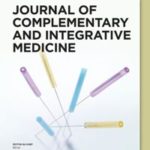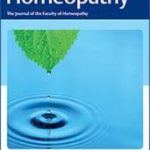Integrative medicine approaches to chronic depression: case studies of the recovery process with a three-step path to recovery and significant cure

Objectives – The support provided by conventional treatments centered on the administration of medication for chronic or other types of depression is limited. Integrative medicine, which is based on both modern Western medicine and a range of complementary and alternative medicine practices, is patient-centered and promotes natural healing in patients to achieve significant cure. This report focuses on the indications of recovery from depression using integrative medicine, especially homeopathy. Methods – Thirty-one patients (9 males and 22 females) with depression underwent homeopathic treatment using various strategies over 3 months, in addition to antidepressants. All patients were diagnosed with Major Depressive Disorders, except bipolar disorders. Three steps were used to model indications of their recovery from depression: reducing difficulties in everyday life, reducing and stopping antidepressants, and reducing and stopping the homeopathic remedies. Patients were considered to have recovered when antidepressants had been stopped for 6 months or more and 3 or more months had passed since homeopathic medicines were stopped. Results – Of the 31 patients with depression, 13 recovered within 2 years of starting homeopathic treatment, and 11 completely recovered from chronic depression. Conclusions – This study suggests that integrative medicine can be a useful strategy for depression, including the use of a three-step strategy for reducing all dependence on clinical treatment. As most patients, especially chronic patients, significantly recovered from depression through homeopathy over 2 years, this model can help understand recovery from depression through integrative medicine.






Lascia un commento
Devi essere connesso per inviare un commento.